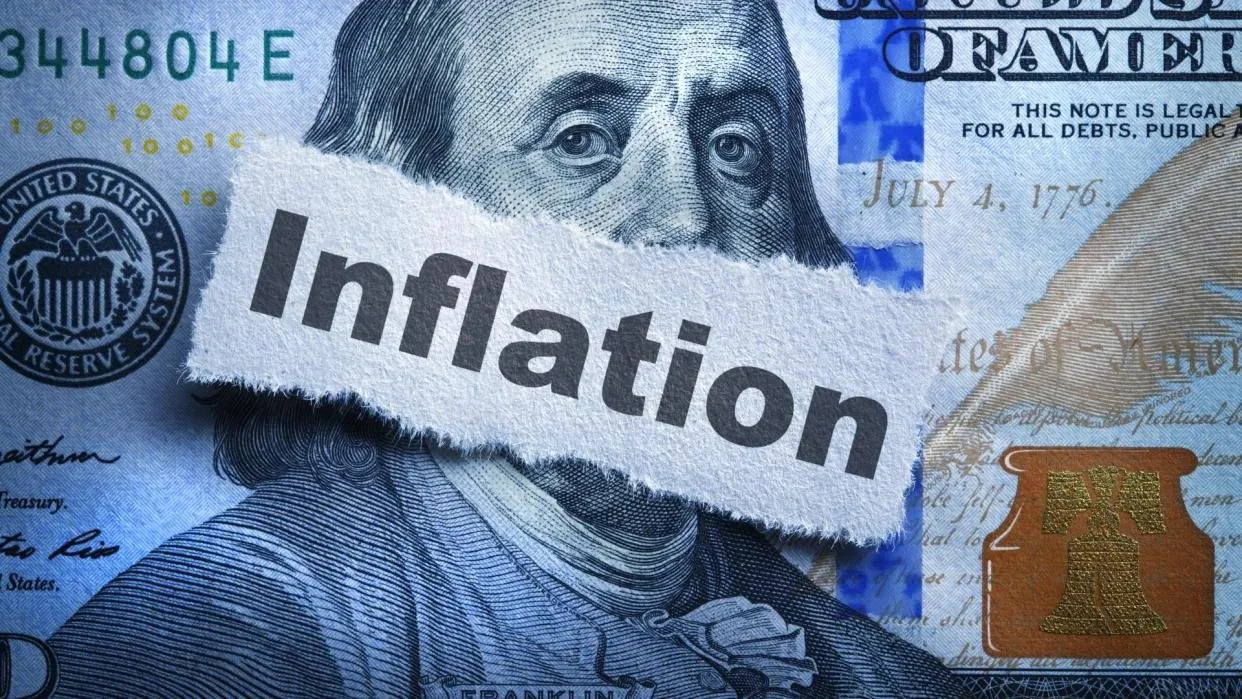Americans Don’t Understand Inflation — This Is How It Actually Affects Your Money
Americans Don’t Understand Inflation — This Is How It Actually Affects Your Money
Cynthia Measom Wed, April 10, 2024 at 10:00
Inflation — it’s a word you hear frequently, but do you really understand what it means?
What most people know about inflation is that it makes things more expensive. A simple definition of inflation is that it’s the increase in the cost of goods and services over a time period in an economy, which is usually expressed as a yearly percentage. Inflation rates are measured by price indexes, including the consumer price index by the Bureau of Labor Statistics and the personal consumption expenditures price index from the Bureau of Economic Analysis.
The main effects of inflation are better interest rates for savings accounts and higher costs of living, but there are several more nuanced effects to watch out for as you manage your money. Increasing your understanding about the different types of inflation and how they could impact your life both positively and negatively can help you make better financial decisions, especially when it comes to protecting your money now and in the long run.
Inflation Can Be Confusing
According to GOBankingRates’ 2024 Financial Literacy Survey, out of all current hot money topics — inflation, interest rates, Social Security and taxes — 38% of Americans find inflation to be the most confusing. Here’s a breakdown of the percentage of each age group that finds inflation most confusing:
18- to 24-year-olds: 29%
25- to 34-year-olds: 42%
35- to 44-year-olds: 41%
45- to 54-year-olds: 45%
55- to 64-year-olds: 35%
65 and over: 32%
Overall, respondents ages 18-24 and those 65 and over — members of the youngest and oldest age groups — find inflation to be less confusing than the other age groups. Respondents ages 45-54 find inflation to be the most confusing of all generations, followed people who are 25-34. Additionally, 40% of women versus 35% of men said that inflation was the most confusing of current hot money topics.
How Inflation Affects Your Money
Not all outcomes of inflation are bad. In fact, maintaining a healthy rate of inflation is good for the economy. Here are some of the positive and negative effects of inflation:
Positive: You’ll Get Better Savings Account Rates
Investors with short-term goals might invest in a high-interest savings account if they think they would need access to their funds in the near future. If this sounds like you, your short-term savings could get a boost because increasing inflation often prompts the Federal Reserve to raise interest rates, and banks, in turn, often raise the rates they pay on savings deposits. So you could benefit from a better return on money sitting in your cash or savings account.
Negative: Borrowing Becomes More Expensive
But those aren’t the only rates banks raise. When the Federal Reserve raises interest rates, it makes it more expensive for banks to borrow money from one another. These increased rates are then passed on to individual and business borrowers. The bottom line is that higher inflation means higher interest rates on the money you borrow — and less money in your pocket.
Negative: You’ll Pay More for Stuff
With inflation, prices of pretty much everything start to rise. Medical care and prices for prescription drugs could increase, and your rent could also go up. And unless your paycheck goes up at least as much as the inflation rate, you’ll be trying to pay for the increased costs of items on the same income, so inflation can be tough on the wallet — especially during hyperinflation.
To Read More Click Link:
https://news.yahoo.com/finance/news/americans-don-t-understand-inflation-140003599.html
